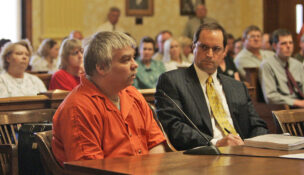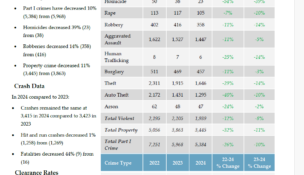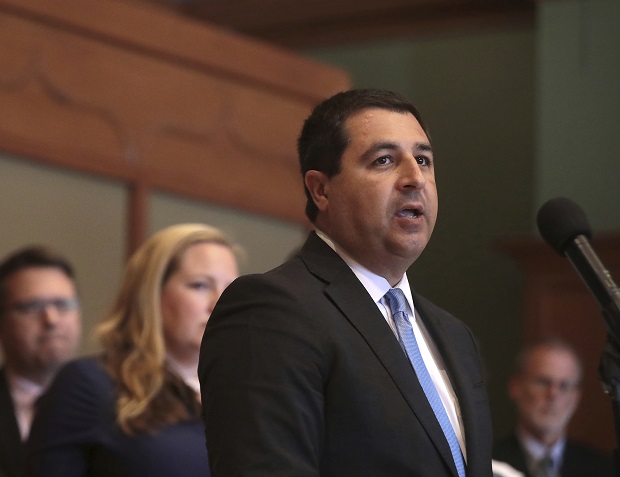Business is booming for estate planners
By: Jane Pribek//April 4, 2011//
Recent changes to federal tax law are creating a wave of business for estate planners and could set off another swell when they expire in 2012.
“Whenever’s there’s change,” said Kathleen Gray, of Quarles & Brady LLP in Milwaukee, “it creates a situation where people should revisit their plans and take another look at whether they still operate in accordance with their intentions.”
The 2010 Tax Relief Act, signed into law by President Barack Obama in December, is set to expire on Dec. 31, 2012, unless Congress acts before then. What happens after that might bring more change — which likely translates into more business for estate planners.
As it is, Adam Wiensch of Foley & Lardner LLP in Milwaukee said, “We’re extremely busy right now.”
The Act opened a two-year window to make substantial gifts tax free as of Jan. 1.
For 2011 and 2012, due to reunification with the federal estate-tax exemption, the lifetime gift-tax exemption is now $5 million.
“The exemption had been $1 million for about 10 years, so as a result of the increase, we have many clients who are making significant gifts in 2011,” Wiensch said. “They’re both transferring assets, as well as forgiving loans.”

Catherine Priebe of Davis & Kuelthau SC, Milwaukee, added that, based upon the controversy surrounding the Act’s passage, there’s no guarantee that the lifetime gift-tax exemption will remain at such high levels after 2012, so some clients are scrambling to take advantage of it.
Another change from the Act motivating clients’ generosity, she said, is its treatment of charitable rollovers. Donors age 70 and a half and older can now give up to $100,000 from a traditional IRA directly to charity without incurring taxes.
Act introduced portability
The Act applies the estate tax on individuals dying in 2011 and 2012, but the exclusion amount increased to $5 million. This means up to $5 million can be transferred at death, tax-free, before a 35-percent tax on amounts transferred beyond that.
“It’s a dramatic change from the $1 million exclusion and the 55 percent tax rate previously scheduled for 2011, Wiensch said.
Wisconsin hasn’t had an estate tax since 2007, Gray said, and state lawmakers have taken no action to reinstate it — nor is that likely to occur under the Walker administration.
The Act introduced “portability” into estate planning. Portability means that spouses, under certain circumstances, can share their unused $5 million estate-tax exclusion amount with each other. It allows spouses to effectively use a combined $10 million exemption — even if no estate tax planning was done at the time of the first death.
But clients have to file the estate-tax form to make the election, even when no tax is due, Priebe cautioned.
This is true even for small estates that fall below the $5 million estate-tax exemption, if the surviving spouse wants to preserve any portion of the unused exemption. Importantly, portability also applies to the federal lifetime gift-tax exemption for married couples.
Portability is a big change and diminishes the role of tax planning in estate planning, Priebe said.
“We’ve never had anything like this before,” she said. “The concern from the estate planning perspective is, if portability applies, why bother doing any estate tax planning before the second death? But for a variety of reasons, I believe it’s still essential to do that front-end planning on the first death.”
Priebe said the fact that the law is set to expire is one reason to keep doing estate tax planning, in addition to the fact that the law doesnít allow you to shelter any appreciation between the first and second deaths.
“It’s just a carry-over of the unused exemption,” she said. “With proper planning, you can cover that appreciation.”
In addition, in second marriages where you want to protect both the children from a first marriage and a second spouse, or if the surviving spouse becomes incapacitated in the future, trusts are still the preferred vehicle for the aspect of control that they offer, Gray said.
Wiensch cautioned that there are a number of risks associated with portability.
“If the exemption goes down, the value of the exemption one spouse gives to another also goes down,” he said. “So if I gave my wife my $5 million exemption in 2011, but it later drops to $1 million, my exemption is now only worth $1 million and she’ll pay taxes on an additional $4 million.”
He went on to say that if the wife remarries and then her second husband passes away, because of the way the law is drafted, she would lose the exemption from the first husband — although she might be able to take advantage of the second husband’s exemption if he suddenly passed.
“My hope is that when they revisit it in two years, Congress will reconsider some of the problems with portability and make it more attractive as a planning option,” Wiensch said.
GST Tax and more
The Act reunified the estate tax and the generation-skipping transfer tax exclusion amount for 2011 and 2012. This means that decedents can make transfers to grandchildren, or to a trust for their benefit, of up to $5 million, tax-free, in the next two years. GSTs in excess of the $5 million exclusion are subject to a 35-percent GST tax rate. Portability does not apply to the GST tax exemption.
In addition, under the Act, clients considering a Roth IRA conversion in 2011 or 2012 will benefit from the extension of lower income-tax rates. Clients who made Roth conversions in 2010 can defer the income from those conversions over two years instead of reporting it all in 2010.
The Act additionally created a retroactive estate tax for 2010, so the federal estate-tax exemption for 2010 decedents is $5 million, and the value of assets in excess of that are subject to estate tax at a flat 35 percent rate. It also gave personal representatives the ability to opt out of it, and instead elect a tax basis adjustment.
Looking ahead
All of these changes have been a boon for estate planners, but what happens next, Priebe said, depends on politics.
“When the two years are up, it will be near the next presidential election,” she said. “The estate tax is not popular because it’s such a high tax. But on the flip side, it affects so few people, and it’s hard to argue that we should completely eliminate a revenue source, when the federal government is running at such a high deficit.
“It’s an unpopular argument either way, so I think Congress is punting until the next presidential election.”
Jane Pribek can be reached at [email protected].
Legal News
- Steven Avery prosecutor Ken Kratz admits ‘mistakes were made’
- Colombian national extradited to Milwaukee faces International narcotics-trafficking conspiracy charge
- MPD: Milwaukee homicides down nearly 40 percent compared to last year
- EVERS: Republican lawmakers No-Show at special meeting to release statewide PFAS funding, stabilize healthcare access
- Wisconsin ICAC Task Force conference on Missing and Exploited Children highlights increase in sextortion cases
- More than 300 Wisconsin officers back in law enforcement after being fired or forced out
- Former Trump staffer who said to ‘fan the flame’ after 2020 loss hired to lead Wisconsin GOP
- Gov. Evers appoints David Casey to Serve as DOR Secretary
- Former Marine sentenced for Molotov Cocktail attack against Planned Parenthood Clinic
- ABA names 34th Annual Margaret Brent Women Lawyers of Achievement Awards honorees
- FBI launches criminal investigation into Key Bridge collapse
- Man charged in slaying after woman’s leg found at Milwaukee-area park
WLJ People
- Power 30 Personal Injury Attorneys – Russell Nicolet
- Power 30 Personal Injury Attorneys – Benjamin Nicolet
- Power 30 Personal Injury Attorneys – Dustin T. Woehl
- Power 30 Personal Injury Attorneys – Katherine Metzger
- Power 30 Personal Injury Attorneys – Joseph Ryan
- Power 30 Personal Injury Attorneys – James M. Ryan
- Power 30 Personal Injury Attorneys – Dana Wachs
- Power 30 Personal Injury Attorneys – Mark L. Thomsen
- Power 30 Personal Injury Attorneys – Matthew Lein
- Power 30 Personal Injury Attorneys – Jeffrey A. Pitman
- Power 30 Personal Injury Attorneys – William Pemberton
- Power 30 Personal Injury Attorneys – Howard S. Sicula











